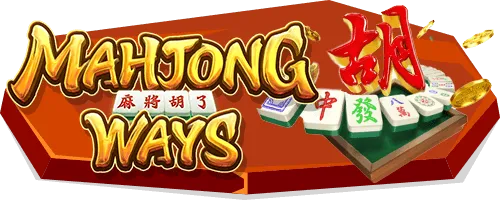
ซุปเปอร์ สล็อต สล็อตออนไลน์ ระดับ VIP ดีที่สุด
ซุปเปอร์ สล็อต ค่ายเกมสล็อตออนไลน์แนวใหม่แห่งปี 2024 ที่รวบรวมสล็อตยอดนิยมจากค่ายต่างๆทั่วโลกมาไว้ในที่เดียว นอกจากนี้ยังได้รับการออกแบบด้วยเทคโนโลยีล้ำสมัย เกมสล็อตรูปแบบใหม่นี้ไม่ว่าจะเป็นรูปแบบเกม RPG กราฟิก 3 มิติมาตรฐาน มาพร้อมความละเอียด 4K ที่ครบถ้วนและดีที่สุดทำให้เกมมีความน่าสนใจเป็นอย่างมาก ซุปเปอร์ สล็อตมาใหม่ล่าสุด เกมสล็อต SUPER SLOT มักจะล่ม และรองรับการเล่นในเว็บเบราว์เซอร์ และแอปพลิเคชั่น SUPER SLOT GAME มีเกมสล็อตมากมายในค่าย ตัวอย่างเช่น SLOTXO, PGSLOT, AMBPOKER, LIVE22 และสล็อตระดับวีไอพีขนาดใหญ่อื่น ๆ อีกมากมาย เว็บพนันออนไลน์ ที่ดีที่สุดที่เปิดให้บริการความบันเทิงออนไลน์ตลอด 24 ชั่วโมง ท่านสามารถเลือกใช้และร่วมสนุกได้อย่างง่ายดาย ระบบการเงินที่มั่นคง ฝาก-ถอน อัตโนมัติตลอด 24 ชั่วโมง ทำให้การพนันเป็นเรื่องง่าย และมั่นใจไม่มีความเสี่ยง ซุปเปอร์ สล็อต เครดิตฟรี 50 ถอนได้ 300 แค่ ยืนยันเบอร์โทร
ซุปเปอร์ สล็อต สล็อตออนไลน์เล่นได้เงินจริง
ซุปเปอร์ สล็อต เว็บไซต์สล็อต และเกมออนไลน์ใหม่ล่าสุดกับ fradesh.com ไม่ว่าคุณจะอยู่ที่ไหนก็สามารถเล่นได้อย่างสนุกได้ทุกที่ทุกเวลา อยากรู้ต้องมาลองเล่นกับเราสิ ไม่ว่าจะเป็น สล็อต เกมยิงปลาออนไลน์ เกมตุ่น เกมไพ่ ครบจบในที่เดียว สมัครวันนี้กับเรา พร้อมรับเครดิตฟรีบนเว็บไซต์ของเราที่เดียว เรารับรองว่าคุณจะไม่ผิดหวังกับเกมสล็อตหรือเกมยิงปลาออนไลน์ 100 โบนัสสำหรับการเล่นสล็อตออนไลน์ ไม่เพียงแต่จะทำให้คุณสนุกตื่นเต้น และตื่นตัวตลอดเวลา superslot ทดลอง นี่เป็นเกมสล็อตเครดิตฟรี ที่จะทำให้คุณเพลิดเพลินทุกวินาทีที่คุณหมุนวงล้อ เพื่อรับเครดิตฟรี หรือเกมยิงปลาออนไลน์วันนี้
เล่นง่ายบนทุกอุปกรณ์ไม่ว่าจะเป็นคอมพิวเตอร์หรือมือถือ iOS และ Android สล็อตมือสมัครเล่น เกมยิงปลาออนไลน์ สมัครสมาชิก รับเครดิตฟรี เล่นง่าย รวยเร็วกับเกม Superslot ฝากขั้นต่ำเพียงบาทเดียวอัตโนมัติ ถอนเงินฝาก อย่ารอช้า เกมของคุณไม่ได้จำกัดอยู่เพียงคอมพิวเตอร์อีกต่อไป ไม่ว่าจะเป็นบนมือถือหรือคุณสามารถสนุกได้ไม่จำกัดบนเว็บ สล็อตออนไลน์ และเกมยิงปลาออนไลน์ที่ดีที่สุด เข้าร่วมเว็บสล็อตเกมยิงปลาออนไลน์ แล้วคุณจะพบกับสิ่งที่แตกต่างจากสล็อตออนไลน์หรือเกมยิงปลาที่คุณเคยเจอ ฝากและถอนได้ไม่จำกัด ทำเงินได้ตลอดเวลา พร้อมดูแลคุณตลอดเวลา สมัครวันนี้

วิธีการฝากเงินผ่านระบบออโต้ของ SUPER SLOT
ซุปเปอร์ สล็อต การฝากเงินที่ Super Slots นั้นง่ายสำหรับทุกคน ซึ่งเป็นระบบการใช้งานที่ทันสมัย สามารถเลือกใช้ได้อย่างง่ายดาย เพียงมาที่หน้าเว็บก็สามารถฝากเงินได้ วิธีการนี้ถือว่าง่ายมากเพราะเป็นระบบอัตโนมัติที่จะทำให้การพนันสำหรับทุกคนไม่เสียเวลา และความยุ่งยาก super slot 777 apk ในการฝากเงินครั้งแรก คุณต้องติดต่อเจ้าหน้าที่ เพื่อรับหมายเลขบัญชี
จากนั้นฝากเข้าบัญชีที่ต้องการ เมื่อทำการฝากเงินแล้วกรุณาแจ้งเจ้าหน้าที่ หรือเราจะแจ้งให้คุณทราบผ่านระบบอัตโนมัติ นี่เป็นอีกวิธีหนึ่งที่ใช้งานง่าย และไม่ต้องรอนานในการรับเงินเข้าเครดิตของคุณเอง จึงไม่จำเป็นที่จะต้องเสียเวลาติดต่อกับเจ้าหน้าที่ ถือเป็นการออมอีกรูปแบบหนึ่งที่ทันสมัย และรวดเร็วตลอดเวลา super 33 slot เกมสล็อตออนไลน์ เป็นการเดิมพันที่มีอยู่ในคาสิโนออนไลน์โดยทั่วไป นี่ก็เป็นที่นิยมมากเช่นกัน
ทำให้นักพนันจำนวนมากเข้ามาสู่สนามจนนักพนันหลายคนประสบปัญหาเล่นสล็อตไม่ได้เล่นยังไงก็แพ้ เป็นเพราะคุณมองข้ามบางสิ่งบางอย่างหรือเปล่า สิ่งที่คุณต้องเรียนรู้ในการเล่นสล็อตออนไลน์คือรูปแบบ และวิธีการเล่นสล็อตออนไลน์ และมีสิ่งสำคัญอื่นๆที่ใครอยากรวยควรรู้ สัญลักษณ์พิเศษสำหรับเกมสล็อตออนไลน์ที่คุณต้องรู้หากต้องการรวยเพราะจะเปลี่ยนเกมสล็อตออนไลน์ของคุณ นอกจากนี้คุณยังสามารถสร้างรายได้ และรับรายได้อีกด้วย
การถอนเงินผ่านระบบออโต้ของ SUPER SLOT

ซุปเปอร์ สล็อต การถอนเงินผ่านระบบอัตโนมัติ SUPERSLOT ซึ่งเป็นวิธีการที่รวดเร็วและทันสมัยมาก ใช้เวลาไม่นานในการทำธุรกรรมให้เสร็จสิ้น เพียงเข้าไปที่หน้าเว็บไซต์ จากนั้นทำการถอนเงินโดยให้ข้อมูลที่ครบถ้วน ได้แก่ ชื่อผู้ใช้ หมายเลขบัญชี และหมายเลขธนาคาร จำนวนเงินที่จะถอนจริง เมื่อแจ้งถอนครั้งแรกจำเป็นต้องให้ข้อมูลที่ครบถ้วน เพื่อให้ระบบสามารถจดจำสถานะการแจ้งถอนได้ เมื่อคุณแจ้งการถอนเงินในภายหลังจะง่ายขึ้น ในขั้นตอนนี้ หากคุณให้ข้อมูลครบถ้วน
คุณจะได้รับรางวัลเงินสดทันทีหลังจากการแจ้งเตือนการถอนเงิน กระบวนการนี้ถือว่าง่ายและใช้เวลาไม่นาน ข้อดีของการเป็นสมาชิก Super Slots คือ ทุกคนสามารถเข้าสู่ระบบการพนันด้วยเกมพนันออนไลน์มาตรฐานได้อย่างมั่นใจและเป็นแหล่งพนันที่เชื่อถือได้อย่างแท้จริง เพื่อให้การพนันของ ซุปเปอร์ พีจี ทุกคนมีความน่าเชื่อถือ อีกทั้งยังเป็นเว็บไซต์พนันโดยตรงไม่ผ่านตัวแทนทำให้ทุกคนสามารถเล่นการพนัน และเลือกลงทุนในเกมการพนันได้บ่อยเท่าที่คุณต้องการ รวมไปถึงการเป็นเว็บไซต์ที่มีมาตรฐานความมั่นคงทางการเงินที่คุณไว้วางใจได้จริงๆ
รวมถึงการให้บริการจากทีมงานที่มีประสบการณ์มากมายสามารถติดต่อ และถามคำถามได้อย่างอิสระ เพื่อให้ทุกคนที่เล่นการพนันสามารถไว้วางใจในการลงทุนได้อย่างไร้กังวล ซุปเปอร์ รวย สล็อต เล่นการพนันโดยตรง ลงทุนง่าย ๆ และได้เงินจริงสำหรับทุกคนแน่นอน สามารถติดตั้งแอปเพื่อใช้งานส่วนตัวได้อย่างยืดหยุ่นตลอดประสบการณ์โดยคุณสามารถเข้าสู่ระบบ เพื่อเล่นได้บ่อยเท่าที่ต้องการโดยมีอิสระในแต่ละวัน
ทำธุรกรรมระบบการฝากเงิน การถอนเงินผ่านเว็บไซต์ Super Slots ด้วยระบบออนไลน์ที่รวดเร็วทำให้การพนันของทุกคนมีความยืดหยุ่น และใช้งานได้อย่างมั่นใจด้วยระบบการเงินที่น่าเชื่อถือ ไม่ว่ากำไรที่ได้รับจะเป็นอย่างไร การแจ้งเตือนการถอนเงินสามารถทำได้อย่างรวดเร็วเพื่อตอบสนองความต้องการของทุกคนแน่นอน
ซุปเปอร์สล็อต เว็บที่มีผู้เล่นเยอะสุดอันดับหนึ่ง แจกหนักจริง
ซุปเปอร์ สล็อต คุณเคยได้ยินข่าวมาก่อนหรือไม่ Super Slots ถือเป็นเว็บไซต์สล็อตที่ได้รับความนิยมสูงสุดอันดับ 1 ในปี 2024 Super Slots เป็นที่รู้จักและไว้วางใจอย่างกว้างขวางในอุตสาหกรรมเกมสล็อตออนไลน์ ทุกครั้งที่คุณเล่น คุณจะได้พบกับโบนัสที่น่าตื่นเต้น และแจ็คพอตตลอด 24 ชั่วโมง
จึงไม่แปลกใจเลยว่าทำไม Super Slots เว็บไซต์ถ่ายทอดสดเป็นเว็บไซต์สล็อตอันดับ 1 ที่มีผู้เล่นมากที่สุดในปีนี้ เข้าร่วมสนุกกับ super 4 สล็อต กับเราและสัมผัสความตื่นเต้นให้กับตัวคุณเอง โอกาสทองในการสร้างรายได้ และสร้างประสบการณ์ที่น่าจดจำที่สุดกับเราวันนี้ บอกได้คำเดียวว่าคุณไม่ควรพลาด
หากคุณกำลังมองหาเว็บไซต์สล็อตเพื่อทำกำไร เราขอแนะนำ Super Slots เว็บไซต์สล็อตอันดับ 1 ที่ตอบโจทย์ทุกความต้องการของคุณ ไม่ว่าคุณจะเป็นคนรุ่นไหนก็สามารถสร้างรายได้ได้ง่ายๆ นี่คือเว็บไซต์สล็อตออนไลน์ที่ดีที่สุด มาร่วมสนุกไปกับ Super Slots บนมือถือ ประตูสู่โลกแห่งสล็อตเว็บไซต์ที่ใหญ่ที่สุดอันดับ 1 รวมเกมสล็อตจากทุกแบรนด์ชั้นนำ และนี่คือเกมสล็อตที่มีโบนัส แจ็คพอตอยู่ในทุกไซต์ซูเปอร์สล็อต ไม่มีสถานที่ใดที่ดีไปกว่านี้

ซุปเปอร์สล็อต ออนไลน์ เว็บยอดนิยม รวมสล็อตแตกง่ายที่สุด
มาสนุกไปกับ Super Slots แตกง่าย เว็บไซต์สล็อตที่ได้รับความนิยมมากที่สุดในโลกของสล็อตออนไลน์ นี่เป็นที่เดียวที่คุณจะได้พบกับเกมสล็อตที่ง่ายที่สุดที่ไม่มีเว็บไซต์สล็อตอื่นใดเคยทำมาก่อน Superslot มีเกมสล็อตให้เลือกมากมายจากผู้ผลิตชื่อดังที่คุณรอคอย ไม่ว่าจะเป็นเกมสล็อตที่แตกบ่อยหรือแตกบ่อยหลังชนะก็สามารถถอนเงินรางวัลได้ทันที ซุปเปอร์ พีจี คุณจะได้สัมผัสมันที่นี่ ร่วมเป็นส่วนหนึ่งของการเดิมพันที่ไม่เคยมีมาก่อนกับ superslot gimi ที่เรามั่นใจว่าคุณจะรักความสนุกสนาน และความตื่นเต้น
สมัครวันนี้ อย่าพลาดโอกาสทองในการสร้างรายได้ มาสมัครสมาชิกที่นี่เลย Super Slots Auto พร้อมระบบที่ทันสมัยที่สุดเว็บไซต์ของเราพร้อมให้เครดิตฟรีแก่ผู้เล่นใหม่ทุกคนโดยไม่จำเป็นต้องฝากเงินก่อน ด้วยเครดิตฟรี Super Slots ใหม่ล่าสุด เรามีความยินดีที่จะต้อนรับทุกคนเข้าสู่โลกแห่งเกมสล็อตที่สนุกและน่าตื่นเต้นที่สุด มาเริ่มประสบการณ์การเล่นสล็อตที่ดีที่สุดของคุณกับเรา ไม่ต้องกังวลเรื่องการฝากเงิน มาสนุกได้ทันที เรามีเกมสล็อตหลากหลายให้คุณได้เพลิดเพลินได้ตลอดเวลา ซุปเปอร์ สล็อต





